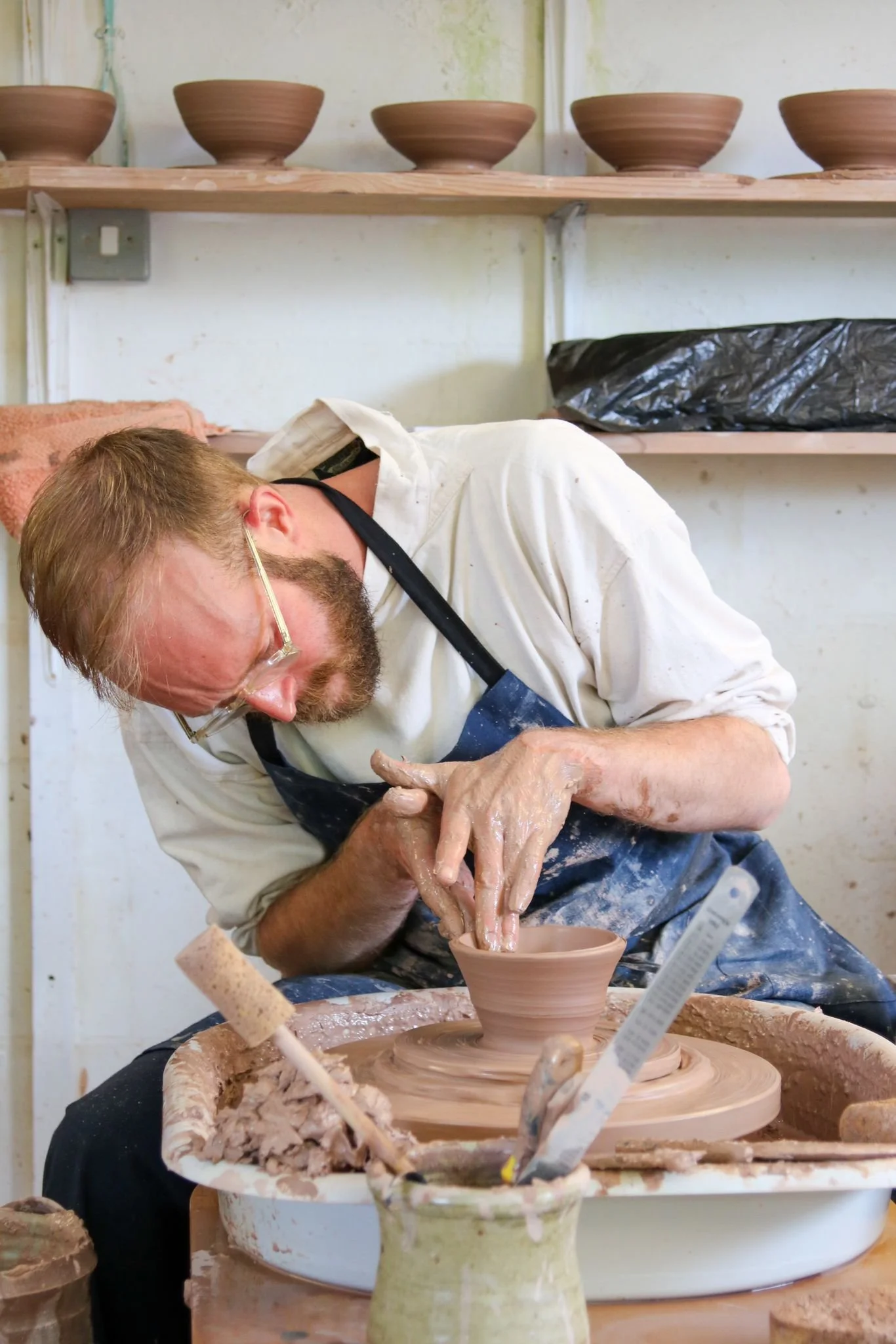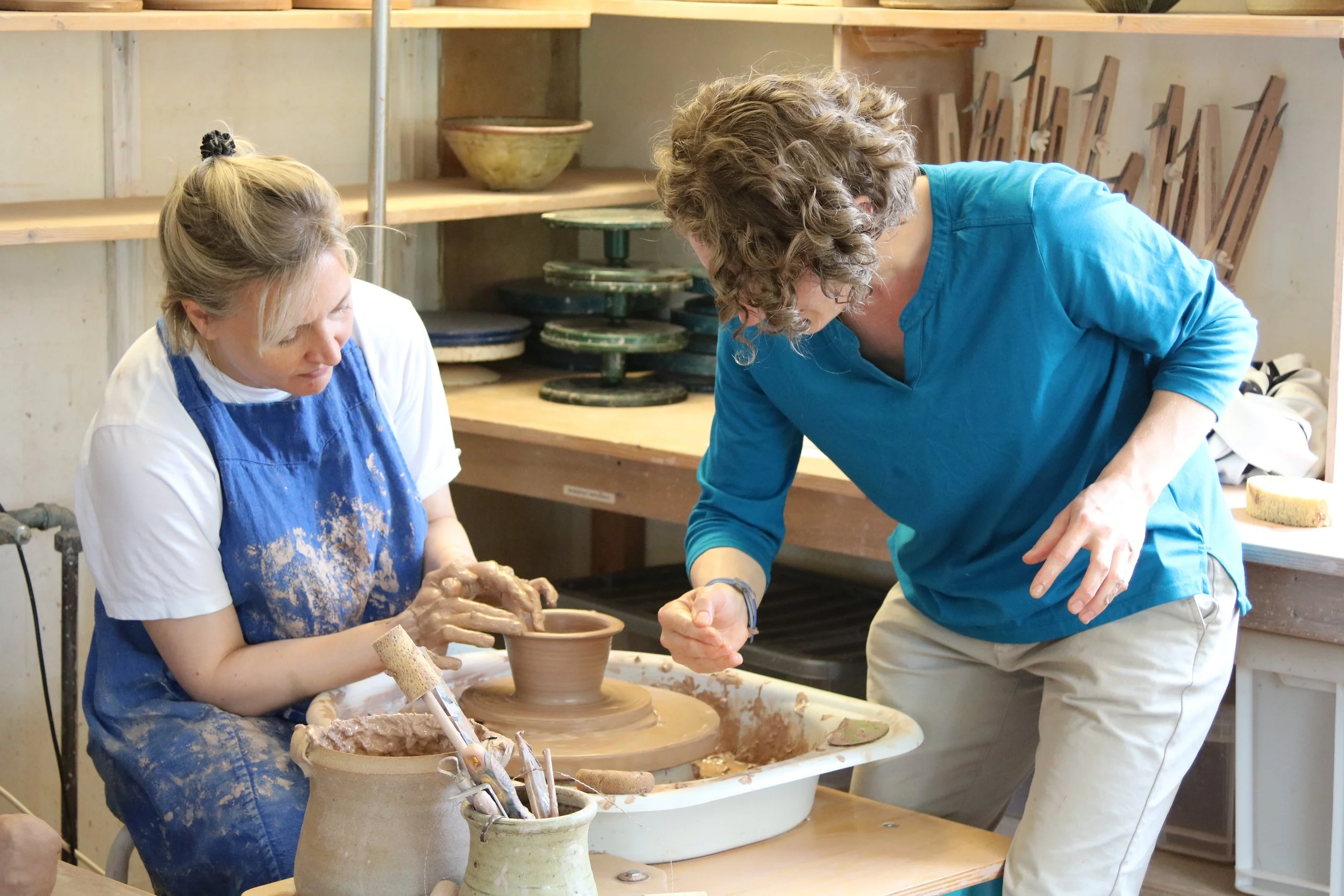Adult courses 2026
The Principles of Studio Pottery
A programme of creative, practical workshops and courses for beginners to advanced potters who wish to explore the skills, technique and ethos of studio pottery.
Making Pottery should not be like climbing a mountain, it should be more like walking down the hill in a pleasant breeze.
Shoji Hamada, 1894-1978
Beginner
You are new to the wheel or you’ve had some experience and are looking to build consistency. Please see details of the skill levels here.
Improver
You have a solid grasp of throwing basics and want to refine or expand your skills. Please see details of the skill levels here.
Intermediate & Advanced
You are a confident thrower with consistent technique, looking to refine your work and take on more complex challenges. Please see details of the skill levels here.
Ability & Skill Level
Workshops are taught in small groups, to allow for the course tutor to provide support to each participant, regardless of their skill level. Abilities are self-identified by the participant on booking, so there may be a range of experience within the group—but everyone is supported at their own pace.
Below is an outline to guide participants identify if they are a beginner, improver or intermediate thrower to help inform their selection of courses. You will be asked to give details of your skill and experience level on booking a place on a course. Please see details of the skill levels here.



